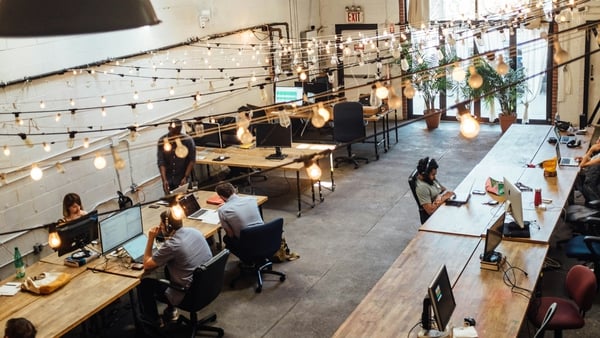Analysis: why do so many companies and entrepreneurs insist that workers should be present at all times?
A recent article in The Economist described an emerging trend in the workplace to expect and require employees to spend long hours at work - and to be present and engaged in their work at all times. Jack Ma, the founder of Alibaba, has spoken approvingly of a 996 model, in which employees work from 9am to 9pm six days a week.
Even in companies where the hours are not especially long, there is a growing expectation that employees should keep their nose to the grindstone at all times. For example, nearly two out of every three US companies monitor and limit employees’ internet activities, with nearly half logging keystrokes or monitoring employee email. Many employees come to work when they are sick, in part because they believe their employers want them chained to their desks at all costs and in part because of the perceived stigma of missing work, regardless of the reason for staying home
We need your consent to load this rte-player contentWe use rte-player to manage extra content that can set cookies on your device and collect data about your activity. Please review their details and accept them to load the content.Manage Preferences
From RTÉ Radio 1's Ray D'Arcy Show, Jacinta Kitt from Trinity College Dublin on how you turn your workplace into a positive environment
Some people are workaholics and they will spend long hours at work, rarely wasting their time because this behaviour meets their needs and preferences. However, most presenteeism appears to be a symptom of a workplace culture that emphasises dedication to the job, together with the frequent problem of evaluating individuals’ job performance. Managers who might have a difficult time figuring out precisely what their employees do, much less how well they do it, can fall back on a simple metric for evaluating employees by observing who is at their desk the most often and how hard they seem to be working.
The most worrisome form of presenteeism is one in which employees are physically present, but unable or unwilling to actually get something done while at work. Being forced to come to the office while you are unable to actually work or at a time when there is really nothing for you to do once you get there (and few opportunities to amuse yourself if the employer monitors your office computer) is at best soul-destroying and at worst humiliating. An employer who forces you to come to the office for no reason, to sit in silence at your desk and to at least pretend to work is doing little more than rubbing in your powerlessness and his or her lack of concern for your welfare.
From RTÉ One's Prime Time, why has workplace stress doubled in recent years?
One of the major puzzles behind this culture of presenteeism is that it is well known to be costly to individuals and organisations. There is compelling evidence that working long hours makes you less productive. More importantly, long work hours are strongly related to the frequency of accidents - this is one reason why the working hours of some truck drivers and virtually all airline pilots are strictly regulated. Indeed, there is evidence that overwork can kill you. If organisations get little benefit from overworking their employees but incur many costs, it is difficult to provide a rational explanation for a culture that insists on everyone being present for long hours.
The best explanations for presenteeism are probably those that combine individual explanations (such as motivation to work and provide service) with organisational factors (leadership styles and corporate cultures). Presenteesim is especially likely to be present in organisations that have a strong culture that is built around the values, experiences and preferences of its founder. It is useful to keep in mind that many entrepreneurs are people who are highly involved in their work and who work very hard. Sometimes, these entrepreneurs simply have a hard time understanding that other people do not feel the same way about work as they do and that the opportunities they find exhilarating end up feeling like being "chained to your desk" by the time they filter down to individual employees.
Even in companies where the hours are not especially long, there is a growing expectation that employees should keep their nose to the grindstone at all times
The best advice to employers and employees is that free time is immensely valuable to everyone, and that the long-term benefits of providing and allowing free time for employees will almost certainly outweigh the costs. Take a break!
The views expressed here are those of the author and do not represent or reflect the views of RTÉ







